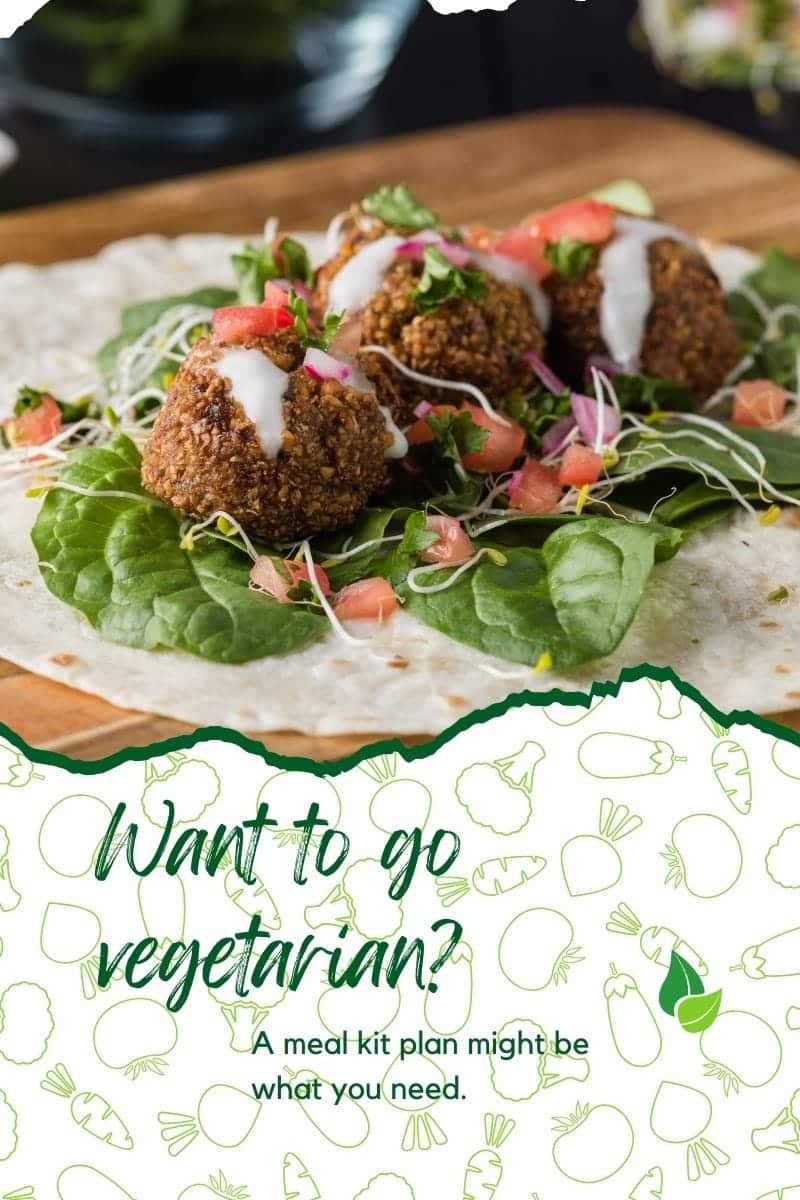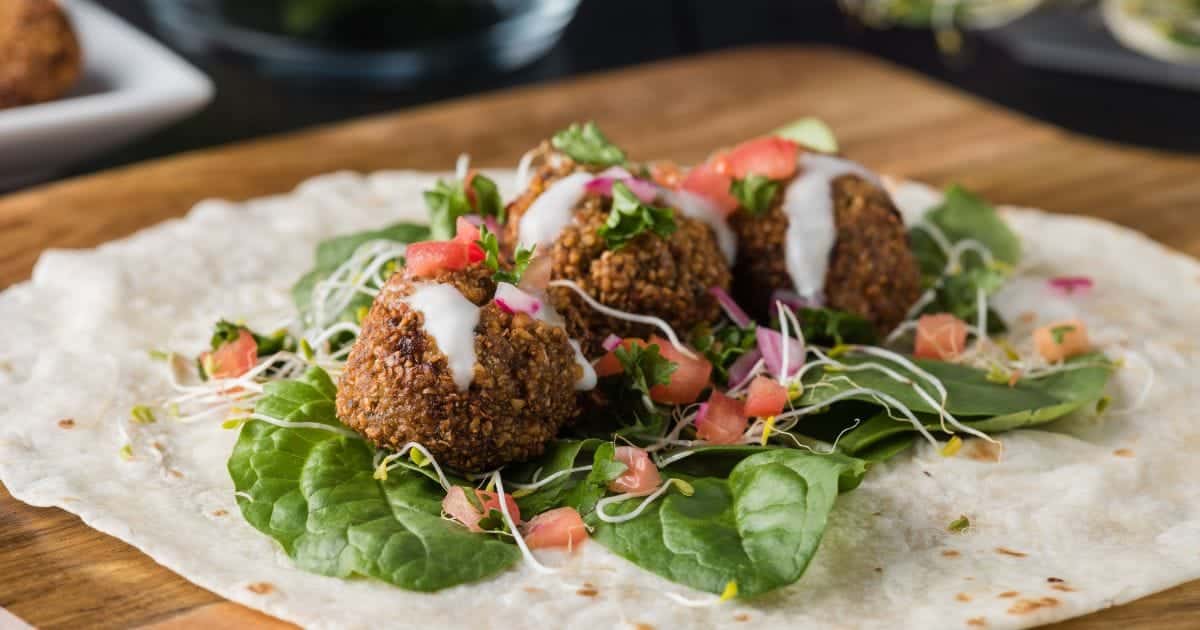If going vegetarian is on your list of 2024 resolutions, a meal kit subscription may be the simplest solution.
Meal kit services (or meal kits) have a range of benefits, from trimming the time and effort spent cooking and shopping to reducing the mental burden of the incessant “What’s for dinner?” conundrum.
Meal kits also give you easy access to all types of recipes, from good-old classics to exotic dishes. Even better, you know the full nutritional profile of every dish you prepare, which makes tracking calories, carbs, and proteins much easier.
TOC

But here are the questions of the day: Do meal kits work for vegetarians? And, can you use a meal kit subscription to wean off animal proteins in your diet?
Challenges of going vegetarian
Full disclosure: I am not a vegetarian, and I don’t plan to become one. I have been trying to make and enjoy more vegetarian meals this year, though — and I’ll stick to it as long as I can keep my husband on board.
I have managed major diet transitions in the past and I do have some self-imposed and unconventional diet habits. I once gave up carbs for a year, for example. And today, I still mostly don’t eat pasta and beans.
For sure, those restrictions are mild relative to the challenges of giving up meat, which include:
- Not knowing what to order while eating out
- Missing the flavor and texture of your favorite meats
- Feeling like your meal options are very limited
- Learning to work with new ingredients like vegetables
Meal kits help you manage through these challenges five ways. You can slow-roll your transition, experiment with interesting and fun recipes, have someone else do the recipe research, use high-quality ingredients, and get the details on exactly what you’re eating. Let’s take a closer look at each of these.
1. Slow-roll the transition to a vegetarian lifestyle
Vegetarianism is not something to adopt cold turkey (see what I did there?). Shape.com recommends taking it easy. Start with one or two vegetarian days per week and slowly work your way up to completely removing meat products from your diet.
The slow transition takes the pressure off you to change everything about how you eat right away. You’ll notice that eating vegetarian requires more meal planning and prepping than the omnivore diet. Fruits, veggies, and legumes are best consumed fresh and in season, so it’s tough to whip up a good meal from pantry and freezer ingredients. Unless you want to live on beans and toast.
This is where meal kits shine. The ingredients are conveniently delivered to you fresh. And they come with detailed instructions for each meal — so you’re not left searching for the recipe you used to make your grocery list.
Even better, meal kit recipes are generally designed under the guidance of nutritionists and chefs to ensure nutritional adequacy. So each dish should have a healthy, wholesome balance of proteins, vitamins, and minerals. That spares you a bunch of deliberation about whether you’re eating the right mix of ingredients.
2. Experiment with fun recipes
Have you ever tried Thai Green Curry or Chinese Mapo Tofu? If you have, it’s most likely you did so at a restaurant, looking to try new flavors.
But would you cook them at home? You might say yes in theory — if you had the right ingredients and the time and the energy. Those are big ifs. The reality is that you might also opt for something easier and less uncertain. And depending on what you’re used to cooking for yourself, the easier, more certain option may not align with your vegetarian goals.
The global vegetarian cuisine is wonderfully varied and includes a combination of colors, textures, and tastes to enjoy. Meal kits provide access to those fun global flavors in the most convenient form. Plus, they generally deliver new and interesting vegetarian recipes every week.
You need that variety if you plan to make a larger commitment to a vegetarian diet. Experimentation shows you what you like and don’t like, so you can better plan new meals and make smart vegetarian choices while eating out.
3. Let someone else research recipes
It doesn’t matter what you do for a living, personal time is a precious commodity. Every day, you’re busy building the life you want. And that doesn’t leave a bunch of free time for researching new recipes and grocery shopping.
For me, time-efficiency is the biggest benefit of a meal kit subscription. Having recipe ingredients delivered to your door cuts several steps out of the meal prep process. You’ll spend less time scouring the internet for recipe ideas and grocery shopping. I know I did. Even if you’re looking for solo meal kits, delivery is not a problem with the right service.
As a newbie vegetarian, you’ll appreciate not having to research ingredients that are new to you — and not having to find them in the grocery store. When everything you need is delivered, including spice blends and exotic ingredients, adopting a new dietary style will feel less like uncharted territory and more like a guided tour.
4. Use high-quality ingredients
Today I live in Santa Fe, N.M. A few years ago, I was living in St. Louis, Mo. From personal experience, I know it can be tough to find exotic ingredients and spices in the local store. I would resort to ordering non-perishables online, but that puts another task on your to-do list. It also requires serious advance planning.
Also, if you don’t have experience with foods like jackfruit or tempeh, you don’t really want to buy them in bulk. What if you don’t like them?
Meal kits get around that problem by sending you recipe-sized portions of the ingredients you need. Try them once and you’ll know if you like them or not.
A meal kit plan also breaks the dependence on seasonal veggies available in your local area. Typically, meal programs source premium produce locally and ship it to you for consumption within days.
Having fresh, quality ingredients on hand gives you a true sense of the tastes and flavors of vegetarian meals. That hopefully prevents boredom and increases the chances you’ll succeed in your diet transition.
5. Know what you’re eating
Meal kits come with detailed recipe cards. They may also give you access to blog posts or other content that shares tips on cooking and prep methods.
Importantly, your meal kits should also include nutritional profiles of every meal. That tells you how well certain recipes replace proteins and other nutrients you’d normally consume in a meat-based diet. Consider those nutritional profiles part of the education you need to deepen your commitment to vegetarianism.
Going vegetarian in 2024
Generally, meal kit programs deliver quality, nutrient-rich ingredients to your doorstep. That spares you the burden of researching what to eat and how to shop. You also get clear and detailed recipe instructions, which can help you improve your kitchen skills and discover new techniques.
Being a vegetarian can be a ton of fun as it lets you discover new and exciting recipes from all over the world. But, if you’re struggling to shift completely to veggie diet, a meal kit service could be the right transition step.
